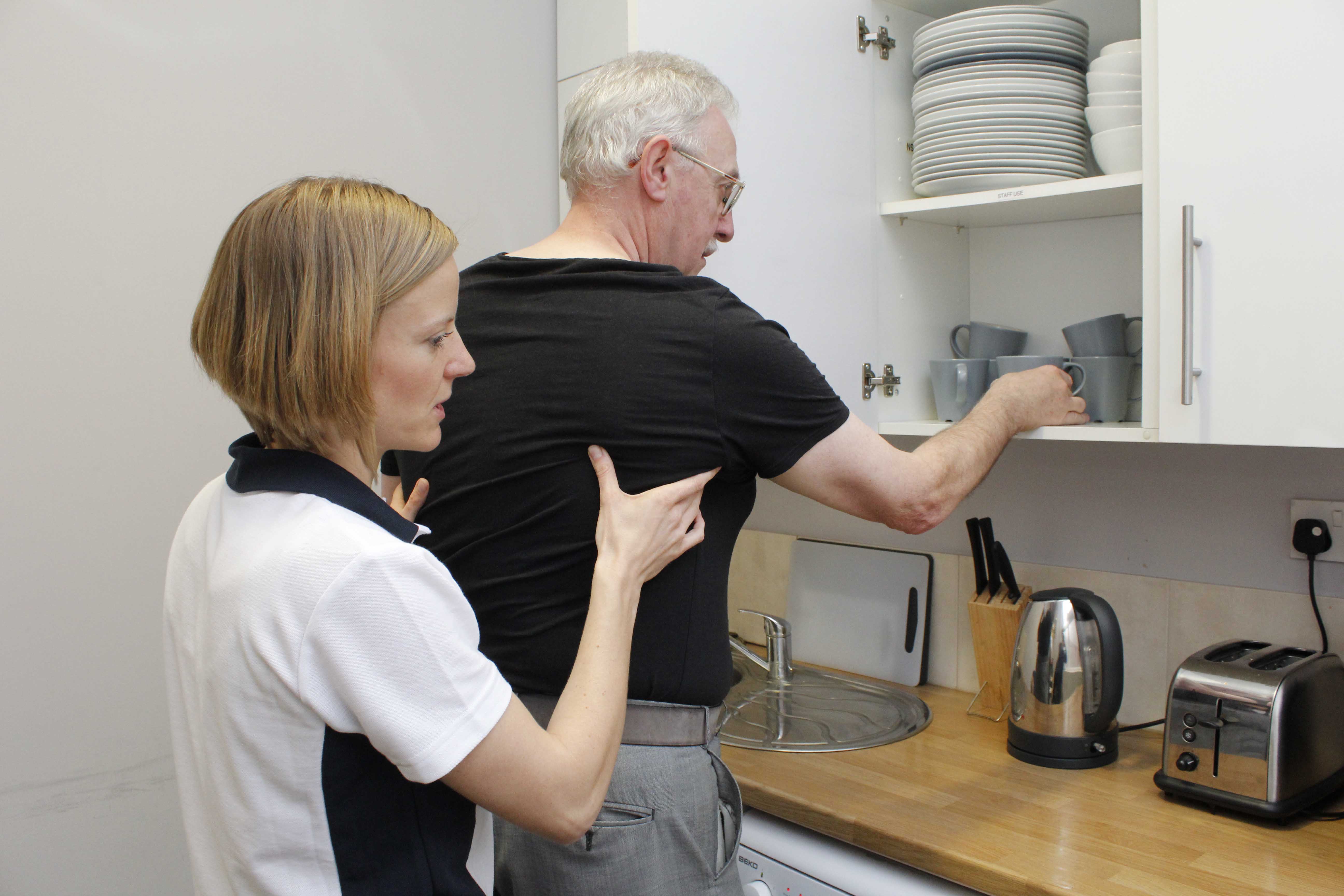Cause of post-hospital syndrome
Whilst in hospital, individuals spend the majority of their time resting in bed or on a chair next to their bed watching television or reading. Helpful staff are nearby to assist the individual to get washed and dressed in the morning and provide meals and snacks. Patients are very well cared for in hospital while they are recovering from ill health.
However, once the individual is medically stable and safe to be discharged from hospital they will return home or be discharged to a care facility. There are a number of reasons why an individual may struggle to re-settle at home or into a new environment. For example, in hospital there are electronic bed controls to assist with comfort, they have lots of friends and family to visit, there are no trip hazards on the corridors and there are rails in the spacious well-equipped bathrooms.
At home, the individual may find themselves in a situation where they are less able to move around due to limited space and lack of assistance. As a result, the individual may feel less confident and become tired very quickly. They may have forgotten how to do tasks that they previously carried out independently such as preparing meals, using the shower or doing the laundry. Walking around in the home environment is also quite different to practicing in the hospital setting due to carpets, rugs and steps. This may cause the individual to be more at risk of falls and balance issues. However, if the individual does not move around enough once they are at home, this can lead to swollen ankles and feelings of loneliness and an inability to manage.
In order to prevent post-hospital syndrome, it is essential that the individuals discharge from hospital is carefully planned by a team of health professionals and the patient’s family to ensure a safe and successful re-integration back into the community.
 Above: Functional rehabilitation exercises assisted by physiotherapist following hospital stay.
Above: Functional rehabilitation exercises assisted by physiotherapist following hospital stay.Treatment of post-hospital syndrome
After a period of ill health in hospital, the individual may not be as strong or mobile as they were previously. It is important that they complete regular exercise and try to return to a normal daily routine. They may need help and support from family, friends and social services.
Physiotherapy for post-hospital syndrome
Individuals who have been recently discharged from hospital significantly benefit from specialist physiotherapy assessment and treatment. Depending on the individual’s problems and goals, physiotherapy treatment for post-hospital syndrome may include:
- Mobility practice
- Falls advice and education
- Muscle strengthening exercises
- Range of movement stretches
- Balance and core stability exercises
- Soft tissue mobilisation and massage
- Practice of functional tasks
- Pain management
- Transfer practice
- Home exercise program
- Training and education of families and carers
There are many benefits to physiotherapy after a hospital stay. They include:
- Reduced risk of falls
- Reduced swelling and pain
- Increased mobility and balance
- Increased range of movement
- Increased muscle strength
- Increased confidence and motivation
- Learn exercises to do in your own time
- Provision of mobility aids and equipment
Why Physio.co.uk for post-hospital syndrome
At Physio.co.uk we understand that it is distressing and worrying to return home after a long hospital stay. Our specialist physiotherapists can help to overcome problems and difficulties with caring, expert advice and treatment. The main goal of physiotherapy is to return to previous level of function and ability to gain an overall improvement in quality of life.
- No waiting lists
- Thorough, professional service
- Treatment at home, in clinic or in a care home
- Friendly, caring physiotherapists
- Flexible appointment times
- Access to occupational therapy
- Proven track record

 0330 088 7800
0330 088 7800

































